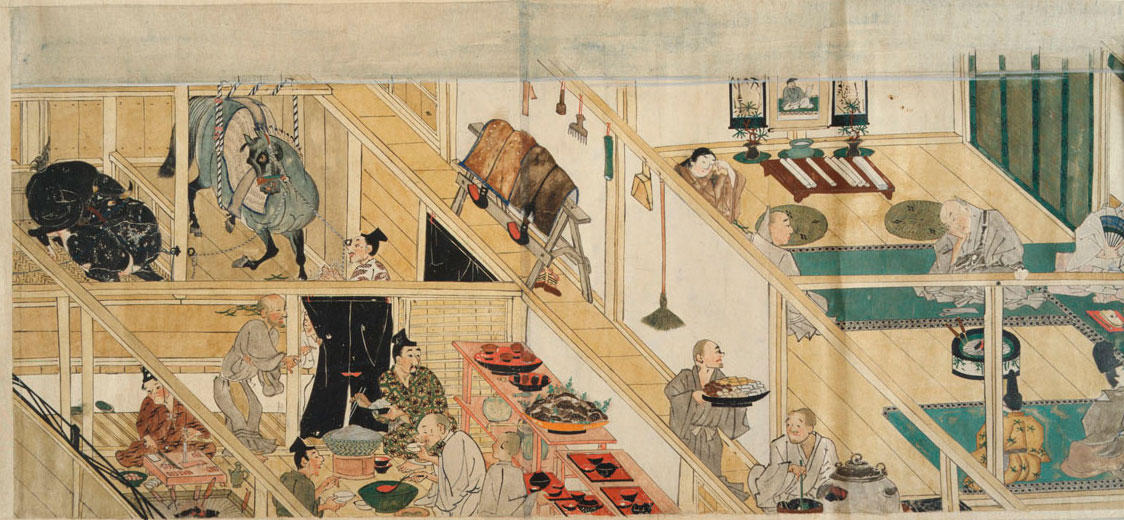Research HighlightsWhy Did Samurai Compose Poetry?Prof. Takeo OgawaDepartment of Japanese LiteratureApr. 1, 2023

I specialize in medieval waka poetry. Although waka poems are considered the domain of the court nobility of the Heian period, they continued to be composed extensively after the Kamakura period and found their way to the provinces and other classes of society outside of the nobility. It’s easy to assume that waka was just one form of culture, but that fails to give credit to the passion that provincial samurai and priests had for poetry. That passion also helps explain why the imperially-commissioned chokusen wakashu anthologies continued to be compiled until just before the Onin-Bunmei war. The custom of kokin denju (“transmission of secret teachings regarding the Kokinshū”) was also created in response to the needs of the times as a system for nurturing the next generation of poetry scholars. Although we don’t see any outstanding singular talents, we see waka tend to gain momentum. I am striving to empirically assess the role of waka poetry as a form of cultural infrastructure by expanding the scope of my work to include adjacent fields.
The power of tradition becomes most apparent during periods of civil unrest. Nijō Yoshimoto (1320-88), who held the regent position of kampaku during the Nanboku-chō period, was a court noble who tried to protect the rituals of the imperial court, despite several threats to his life. At the same time, he was also a proponent of renga poetry and sarugaku theater and was regarded as an authority on the subjects. His leadership created what is now known as Muromachi culture, but I also have the impression that he successfully harnessed the energy of the emerging classes who were attracted to these traditions. I have made several attempts to paint a comprehensive picture of his life, most recently in my book, Nijō Yoshimoto (Yoshikawa Kōbunkan, 2020), as part of a biography series.
During the Sengoku “warring states” period, different political centers formed in various parts of the country, but the borderless authority of waka poetry remained strong. There is no shortage of feudal lords from this time who were fond of waka poetry. In the Kanto region, after shogun Ashikaga and deputy shōgun Uesugi left Kamakura, Ōta Dōkan (1432-86), a mere vassal of the Uesugi clan, became an influential figure in the area. The fact that Edo Castle, built by Dōkan, hosted poetry contests and gatherings and even attracted renga poets and merchants shows the existence of a firm, evolving tradition.
Medieval society was strictly divided, and the role of the aesthete poet (recluse), who had no status, was also important. While poets also had the respect of Yoshimoto, Shōtetsu (1381-1459) was a typical Muromachi poet who came along a short while after Yoshimoto's time. Shōtetsu was free to compose poems, and he took the shōgun and other samurai as his pupils. I have published an annotated translation of Conversations with Shōtetsu(Kadokawa Sophia Bunko, 2011), which offers an intimation of his teachings. Since Muromachi waka poetry is not covered in classical literary canon, I would like to continue to provide these texts in a form that is accessible to readers.
I have continued to explore Yoshimoto's work since I wrote my master's thesis some 30 years ago. It’s strange even for me that I have yet to tire of him, but there is still more to learn. I have also begun to revise and annotate the Tsukubashū, an imperial anthology of renga poems, which was compiled by Yoshimoto during Japan’s most violent civil war. I hope to complete this project one day.
(2023/4/1)


